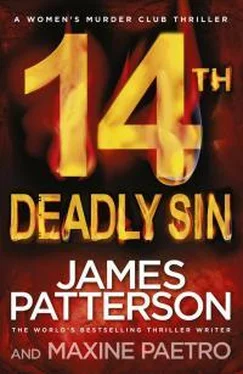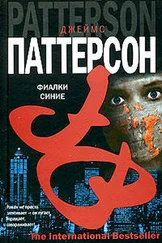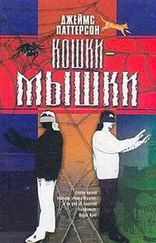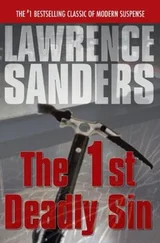Men inside the building were armed and alert, which made this job riskier than taking out a couple of stoned junkies in a crack house.
One said to his crew of two men, “Ten minutes, OK? We waste men, not time.”
There was tension inside the van as the three men put on Kevlar vests and their Windbreakers, gas masks, and SFPD caps. They screwed the suppressors onto their M-16 automatic rifles with thirty-round magazines. When he was ready, One stepped out of the van and shot out the camera over Wicker House’s back door. The suppressor muffled the sound of the bullet.
Two and Three exited the van, went to the steel-reinforced rear door, and set small, directed explosive charges on the lock and the hinges. They stood back as Two remotely detonated the charges. The soft explosions were virtually unnoticeable in the area, which was largely deserted at night.
One and Two lifted the door away from the frame. Three entered the short hallway that led to the lab and started firing with his suppressed automatic rifle. Glass shattered. Blood sprayed. Once the men in the lab were down, the three men in the Windbreakers rushed the locked door to the second floor.
When the lock had been shot out, the shooters breached the door and bolted up the stairs toward the second floor.
They were met with a furious onslaught of gunfire.
CHAPTER 40
TWO WAS IN the lead as the blast of gunfire shattered the Sheetrock in the stairwell, showering plaster and spent brass down on him and the other guys in the crew.
The gunfire was expected.
The three men flattened themselves against the stairwell wall. One screamed, “This is the police! Drop your weapons!”
Two aimed his CapStun launcher and fired the military-grade pepper bomb up the stairwell.
There was a loud bang. The canister dropped onto the warehouse floor and hissed as it released the fine mist. A moment later, two men on the second floor stumbled toward the head of the stairs, hands over their watering eyes, coughing helplessly, calling out, “We don’t have guns. Don’t shoot.”
One said, “I’m sorry, but put yourselves in my place.”
He fired two short bursts with his M-16, then stepped out of the way as the bodies tumbled heavily down the stairwell.
The shooters climbed to the second floor, and One looked around the warehouse, which was just as the snitch had described it. It took up the whole second floor.
In front, against the wall facing the street, were stacks of wicker furniture. In back, around where One and his crew stood, office equipment was lined up on the various tables and shelves. There were copiers, rolls of plastic and tape, scales and money counters, cardboard cartons, and a laptop with the screen showing a quadrant security camera view of the inside and outside of the factory, including the static from the camera he’d shot out over the back door.
There was a gun safe in the corner, five by three by two, and it was open, saving them the trouble of blowing off the door with explosive charges. The safe was full of packets of heroin, and next to the safe were stacks of small cardboard cartons and a half dozen army-green duffel bags. Three unzipped the bags and announced, “A whole lot of cash, One.”
One heard a racking cough coming from a closet. Gun readied, he opened the door to find a man sitting in a crouch, covering his eyes with his arms. The man looked up, his face swollen from the pepper bomb. He cried out, “I can’t see .”
One said, “Where’s Donnie? Where’s Rascal?”
The man in the closet hacked and wheezed. “They left.”
One said, “OK. Sorry. I have to do this, bro.”
He pointed his weapon at the man on the closet floor and fired. The guy screamed, then collapsed.
One called out, “You guys OK?”
After Two and Three said they were fine, One went over to the cartons stacked on the floor. He opened flaps and did a rough tally of the eight-by-six-by-four-inch parcels, neatly wrapped in glittery paper, taped and labeled BLUE WAVE, MAD FANTASY, SUNNY DRAGON.
There were hundreds of pounds of synthetic pot in these packets, the kilos of H in the gun safe. With the duffel bags of cash already packed, they were good to go.
The three men made several trips up and down the stairs, which were littered with bodies and shell casings. They carried the bags of money, the cartons and packets of drugs, and the laptop down to the van.
When the last of the haul was safely stowed, One went back into the house, where he checked to make sure the downed men were all dead. Then he turned out the lights and locked the door.
Wicker House was out of business, but One and his crew were very damned close to early retirement.
Job well done.
CHAPTER 41
THE BLEEPING PHONE rang way too early.
Joe said to me in his sleep, “I’ll get her.”
“Stand down, pardner,” I muttered. “I got this.”
I grabbed my phone from the nightstand and noticed that the time was 5:51 and that my caller was Brady. As far as I knew, I was off duty. I took the phone into the bathroom. “What’s wrong, Brady? Personal or business?”
“Business.”
Thank God. I didn’t want to hear that he or Yuki was in a jam. Once that was out of the way, I had to know, why the hell was Brady calling me at oh-dawn-hundred?
“What’s up?” I said.
Martha came into the bathroom and made circles around my legs until she successfully herded me into the kitchen. Her bowl was empty.
“I’m in your neighborhood,” he said.
“You’re saying you want to stop by? It’s not even six. ”
“I’ve just come from the scene of a massacre,” he said.
“I’ll put the coffee on,” I told him.
By the time I’d showered and dressed in whatever was on the bedroom chair, Brady was at the door. He looked blanched, and this wasn’t the fault of the lighting.
“Sit,” I said, indicating a stool at the kitchen island. I double-checked that both bedroom doors were closed. Then I poured coffee and set out milk and sugar. I leaned against the stove, arms crossed, and waited for him to speak.
He said, “Why did you turn down the lieutenant’s job? I mean, you had it before you stepped down. Then, when Jacobi moved up, you could’ve had the job. But you turned it down again.”
“I couldn’t stand the paperwork, the meetings, the middle-management crapola,” I told him. “I wanted to work cases. One at a time.”
He said, “No kidding. I feel like a shit sandwich about ninety percent of the time.”
He sipped coffee. The suspense was killing me.
“What happened, Jackson?”
“Narcotics had been watching this house in lower Bernal Heights for a couple of months. It’s a factory disguised as a furniture showroom. They had eyes on the place, but they didn’t know what was going down until it was over.
“The scene inside that house.” He shook his head. “Like a freaking war zone.”
“Fatalities?” I asked him.
“You bet. I think seven.”
“What was it? A robbery?” I asked.
“That’s what it looks like. The dead men look like employees. We think the shooters got away,” Brady said. “Narco caught a nanosecond of video showing three guys in a white panel van leaving the Wicker House parking lot. At least one of them was wearing an SFPD Windbreaker.”
“Come onnnn.”
Brady said, “If those were our guys, they’re escalating from ripping off drug slingers and mercados to major scores like this. We may have caught some kind of break.”
Brady sank into thought.
“What, Brady? What kind of break?”
He snapped out of it. “We’ve got visuals of two punks leaving the house earlier in the morning, before the raid went down. They don’t look like our shooters, but they gotta know something. And we’ve ID’d them. Punks. Like I said.
Читать дальше












